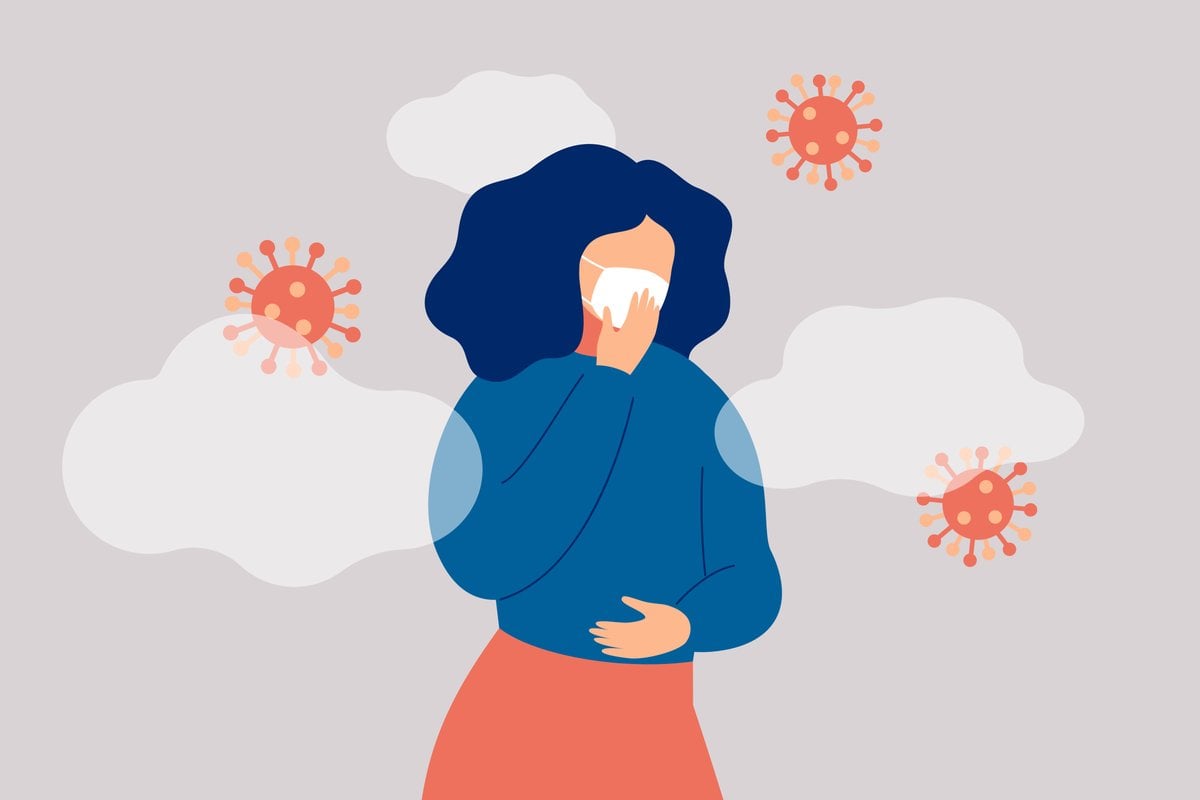
Some of the biggest questions around COVID right now are not so much about the virus itself, but rather 'long COVID' - the symptoms people are experiencing months after contracting the virus. Fatigue. Brain fog. Loss of taste and smell.
It's a distressing aspect of the pandemic, and one that has been shrouded in mystery - with health experts struggling to answer why some patients recover soon after infection, while others struggle with lingering symptoms for months on end.
Watch: Here are some signs to use when talking about COVID. Post continues below.
However, a recent study has attempted to pinpoint the answers to some of these questions, following more than 200 patients and monitoring their symptoms after being diagnosed with COVID.
Here, we look at some of these findings and ask GP Dr Imaan Joshi from Skin Essentials to break it down for us.
Are some people more prone to long COVID than others?
In case you need a quick rundown, 'long COVID' is defined by the Centers for Disease Control and Prevention (CDC) as new, recurring, or ongoing symptoms four or more weeks after infection, sometimes after initial symptom recovery.
